You must be upgraded: fitness tech innovations that will build a better you
From full body scanners to electronic personal trainers, these innovations promise to make you fitter, slimmer and sexier

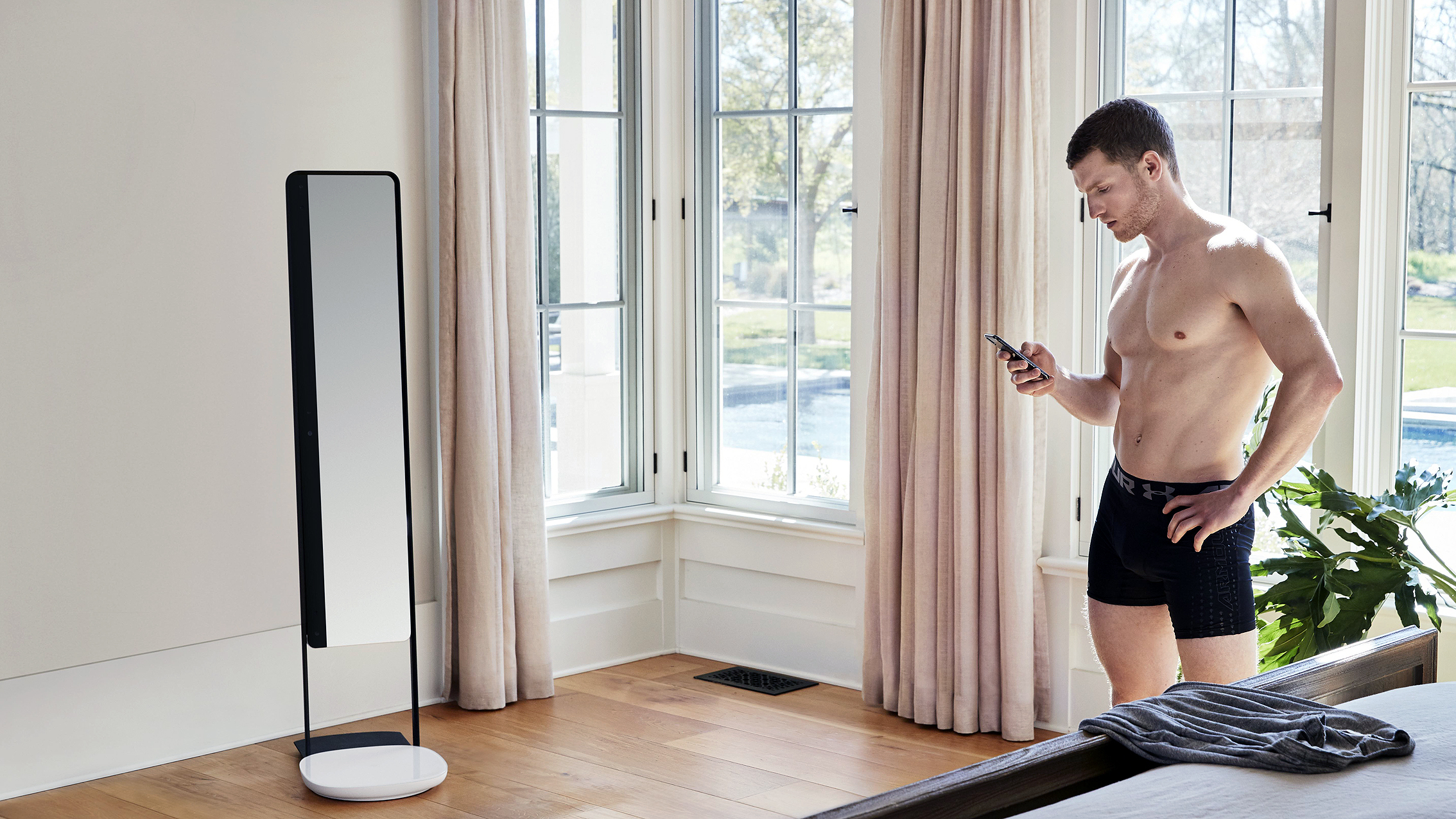
Just a few years ago, 'fitness tech' meant little bands that counted your steps. Now, although these remain popular, former market leader Jawbone has gone bust, while the other band big boy, Fitbit, is reinventing itself with devices that do everything from automatic run tracking to non-automatic menstrual cycle tracking.
The times are a-changing, and a whole gym's-worth of new devices from challenger brands are currently sweating through a training montage. From wearables to fitness hearables to whole body scanners, their goal is to transform the way we get fit, analyse our improvements and hit our goals by space year 2020. Here are some of the most innovative right now.
- Do you have a brilliant idea for the next great tech innovation? Then enter our Tech Innovation for the Future competition. You could win up to £10,000!
- Best fitness trackers
- Best running watch
- Best headphones for running and gym
- 8 of the most innovative sneakers of all time
1. Body scanning: it's time to get Naked
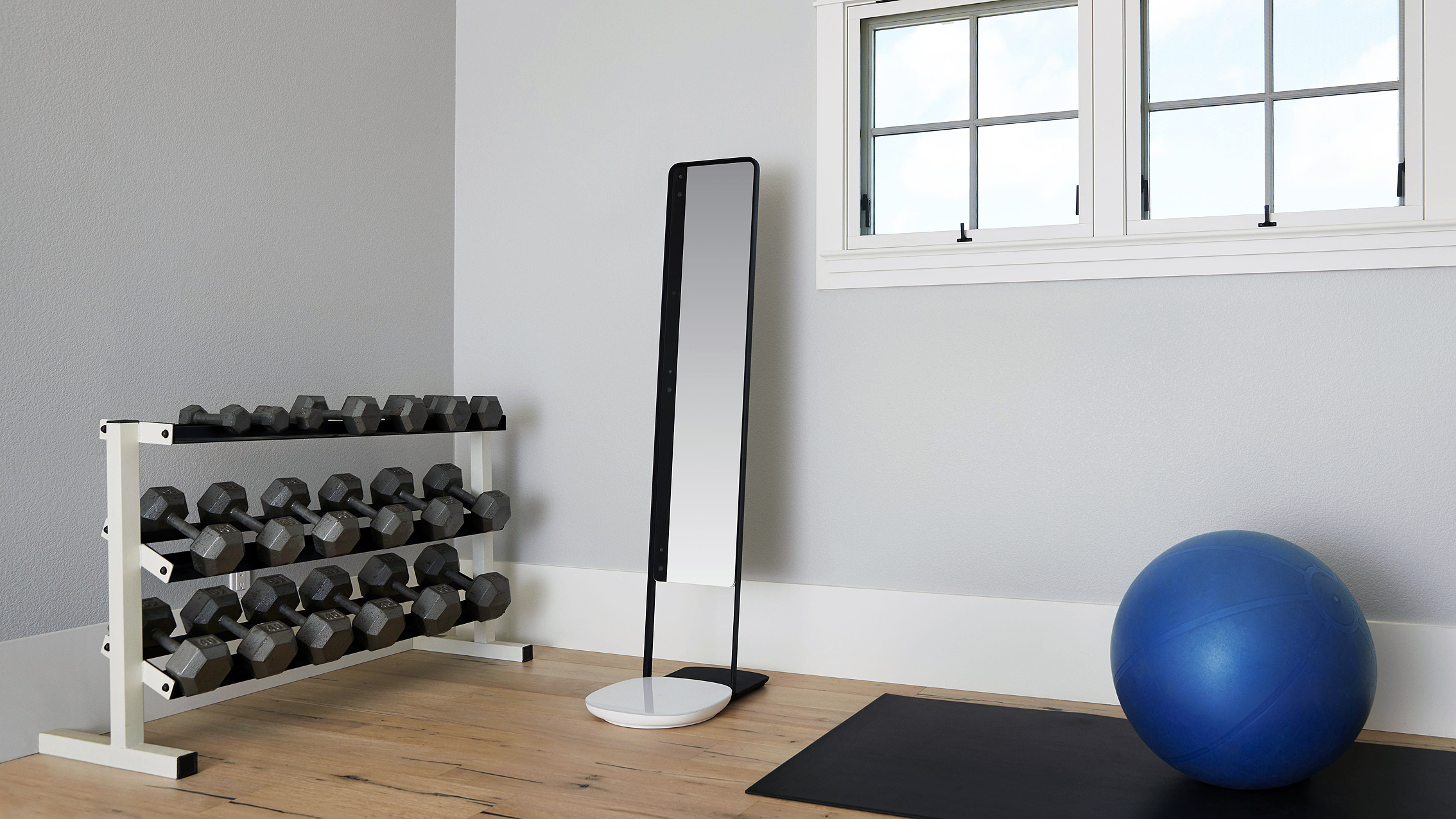
Mirror, mirror on the wall, who is the buffest of them all?
Just released in the US for a trifling $1,395, Naked is an intelligent full body-tracking mirror. The tech inside is extremely clever, but to put it in layman's terms, if you stand in front of it with your clothes off, Naked will tell you if you've piled on the pounds, or if you are lookin' good.
Its 3D Scanning Technology uses infra-red light and Intel RealSense depth sensors to scan your body in three dimensions, while you stand on some rotating scales that work on carpet and hard surfaces. Each scan sucks in 4GB of raw data, measuring "360 degrees from head to toe within 5mm accuracy utilising over 4 million points of data."
This data is then sent to the Naked app, where you can track the usual things like weight and body fat percentage as well as more in-depth measurements. Best of all, it tracks how your 3D scans have changed over time, giving you something a bit like a before and after picture of the T-1000 from Terminator 2.
None of this is going to help you get in shape on its own, but it should certainly help to motivate you and see how your body has improved (or not, as the case may be).
2. Next-gen running coaching: Stryd, Lumo and more

With new coaching tech, you too can run in the air
THE big story in 2018 fitness tech, at least in terms of number of entrants, is run coaching via sensors and apps.
Get all the latest news, reviews, deals and buying guides on gorgeous tech, home and active products from the T3 experts
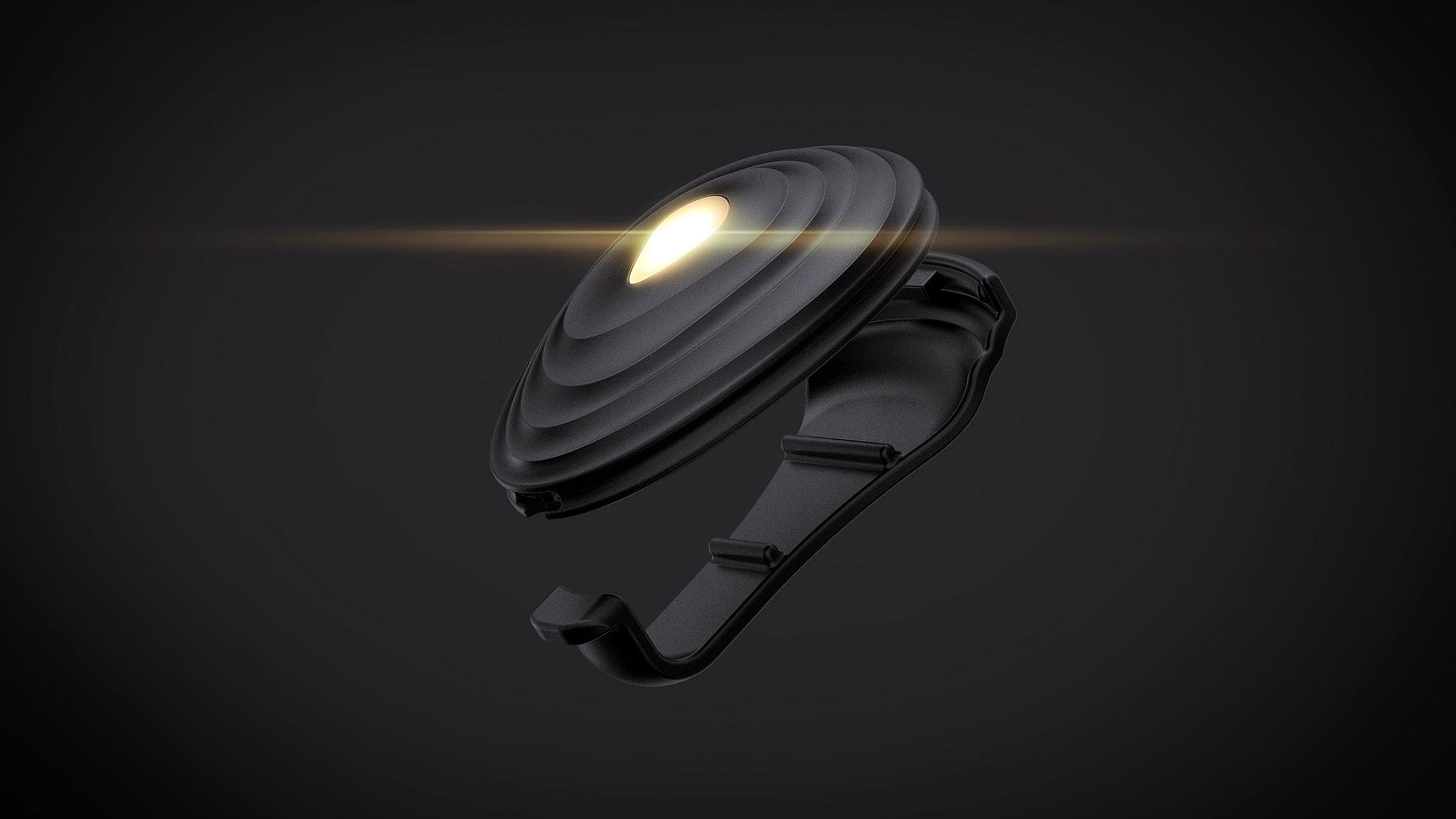
Take strides with Stryd
Stryd, for instance, offers an interesting new approach, encouraging runners to concentrate on 'power' over speed or distance. This means that you target the same overall effort, whether on a flat road or scrambling up a hill, without over-exerting yourself early in a race or training run.
The Stryd sensor, which goes on your shoes, tracks your efforts in a wide variety of way, and shows the results to you on a wide range of compatible running watches. Like many of the new breed of running wearables, it also offers personalised training plans for 5km, 10km, half marathons and marathons.
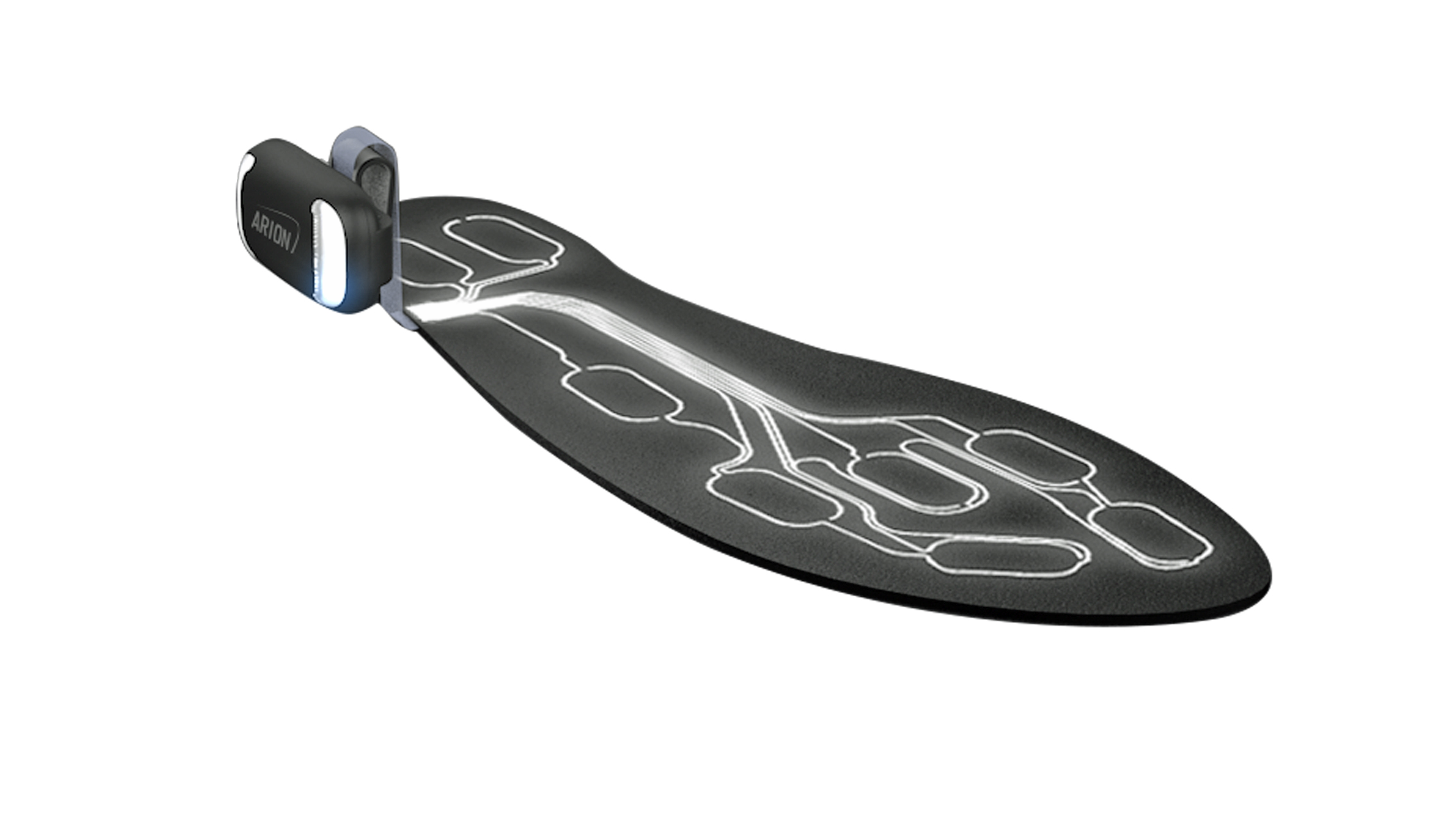
Arion: intelligent insoles to help you run faster
If you're after some more intensive coaching as you run, the likes of Arion, Lumo Run and the veteran of this field, Moov, are all worth your time.
Arion insoles show you where your foot strikes the ground as you run. This is an important factor when buying shoes, and in some cases can even prompt runners to change their style of running to a more efficient and less injury-prone approach.
They also monitor (deep breath) "step length, cadence, balance, contact time, pace, impulse, stability and flight time". Plus via the app and a pair of headphones, they offer real-time coaching to improve each element (one at a time), over the weeks and months.
Lumo Run is aimed specifically at helping you run in a way that is more efficient and less likely to knacker you out (to put it in technical language). Here, the metrics tracked are vertical oscillation, braking, pelvic drop, and rotation, all of which can be factors in the aforementioned knackerising.
Lumo doesn't just offer remedies to bad running form while you're out pounding the pavements, it also has a range of videos to watch afterwards, suggesting ways to alleviate bad 'pelvic drop' – which does sound painful, let's face it.
Moov has been around for years but for 50 quid or so it's still a great little tracker and voice coach, offering in-play tips on everything from running to cycling to gym workouts.
3. FIIT and MyZone: like a gym personal trainer but less intimidating
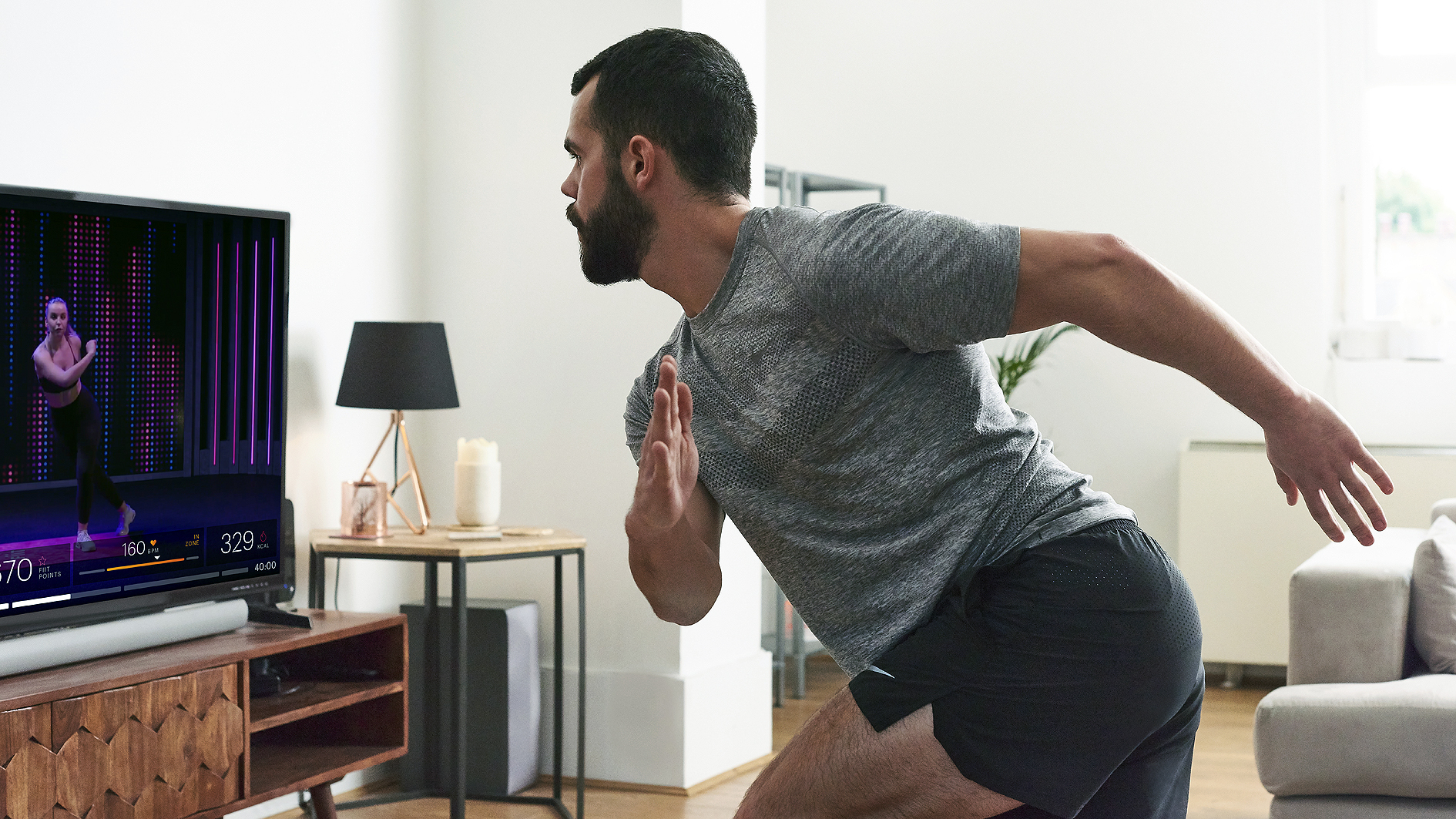
FIIT: it's basically very hardcore Wii Fit
Moving away from the running arena, there is some great new coaching tech for home and gym workouts, with FIIT among the most interesting.
Technologically, FIIT is quite simple, and you could look at it as Wii Fit for adult gym goers or a Jane Fonda workout tape for the 2010s. Just strap on a cardio tracker, and watch as a roster of high-class personal trainer types put you through your paces on video on your mobile device or (once plugged in via a cable or Chromecast/Apple TV), your television.
The quality of said workouts is high, although there could do with being a few more of them, and the heart-rate tracker enables you to target zones and/or observe how your fitness improves over time.
It also has motion sensors to count reps in bodyweight exercises. As with Wii Fit (but not Jane Fonda), you're scored for your efforts, with FIIT points awarded based on your age, weight and level of cardio exertion during the workout.
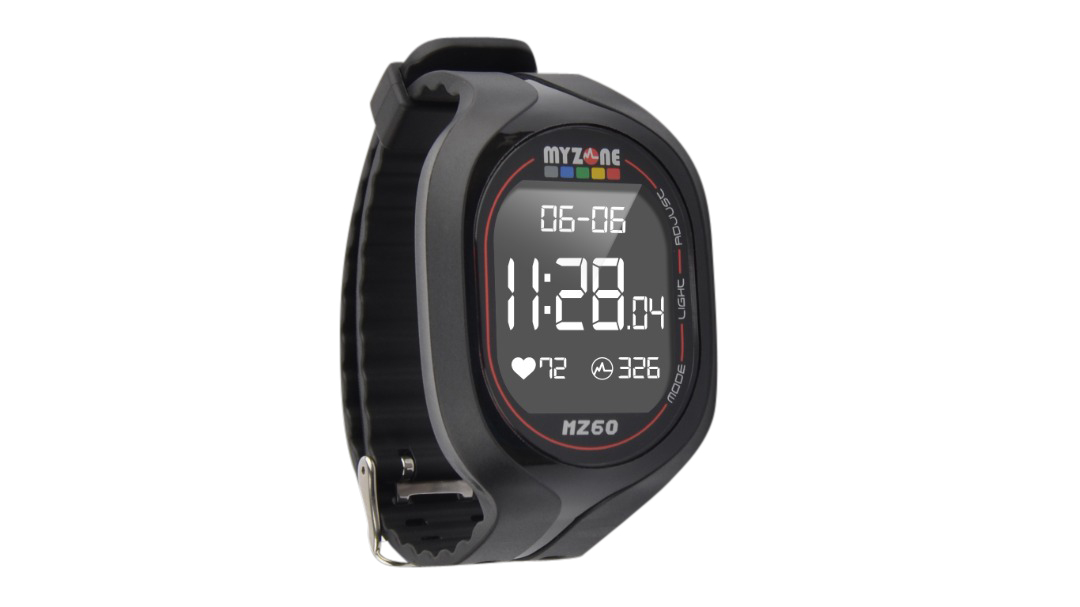
This is similar concept to MyZone, which is a more purely gym-based tracker that's been around for a few years. This is a smart heart-rate-tracking chest strap (there's also an optional wearable display as seen above) and FIIT recently added the ability to track how quickly your heart recovers after vigorous, calorie-burning, muscle-shredding, HIIT-style workouts.
This is a genuinely useful metric that's actually quite easy to do – it's hard to see why so few fitness trackers bother with it.
4. Lumen: we don't know what it is but dieters LOVE it
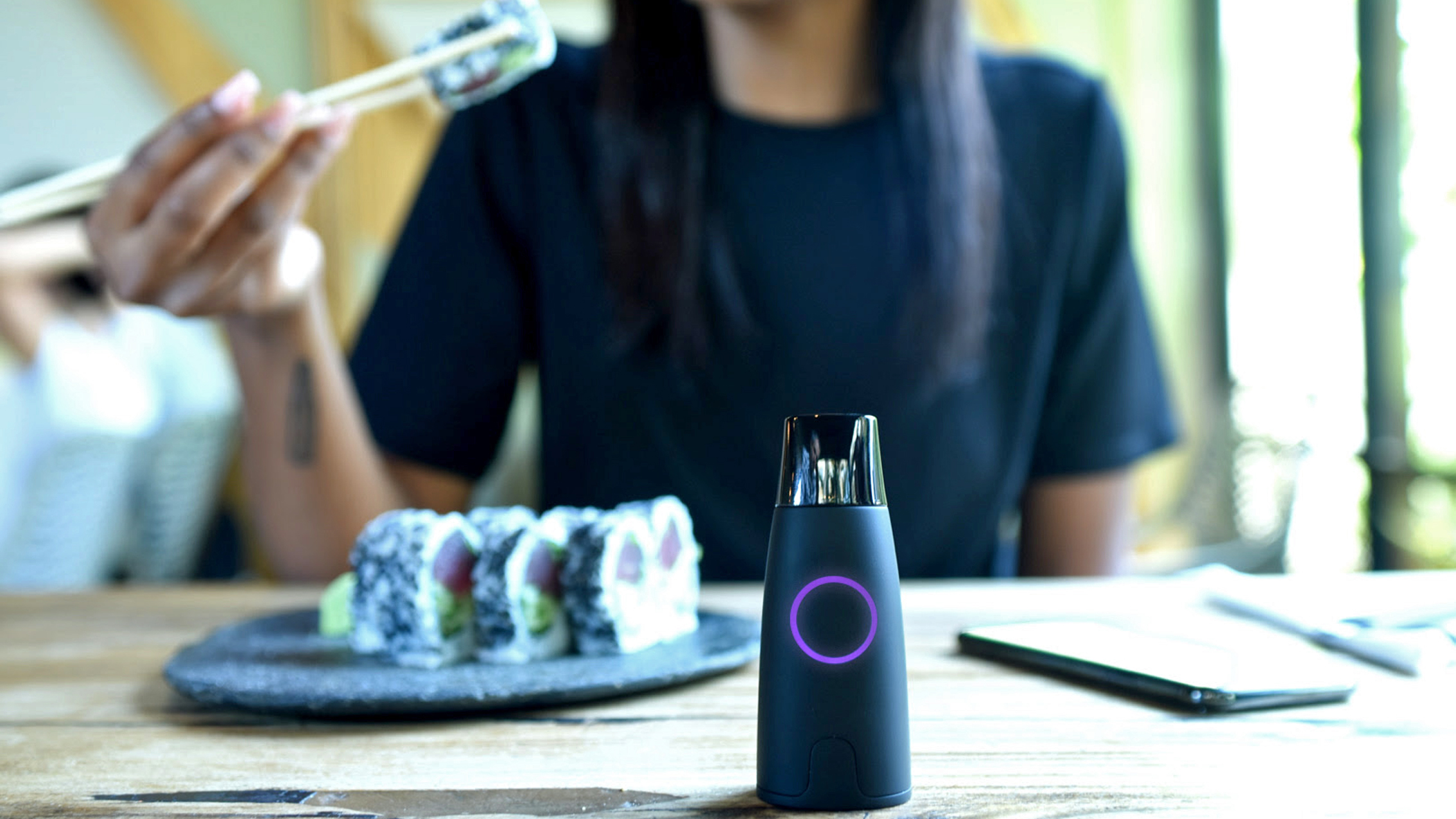
Lumen: it knows how fast your metabolism is working, when you blow in it. No, we don't get it either…
On the outer fringes of fitness and wellness tech we find the likes of Modius – a headset that stimulates your brain so you become less fat – and red hot crowd-fund sensation, Lumen.
Lumen is a pocket-sized device that looks a bit like a vape, and, according to its makers, "hacks metabolism in real-time, has helped beta users lose an average of 6.8 pounds in 30 days, and has quickly gained popularity amongst consumers since the July 17 campaign launch."
So, er, what is it? We don't really know what the underlying tech is because Lumen makes no attempt to explain it, but we do know you blow into it, then "Lumen’s powerful AI engine analyzes metabolism to determine whether users are burning carbs or fat for energy and provides immediate nutritional guidance and real-time insights based on that physiological data."
The Lumen app then apparently comes up with a daily nutrition plan personalised to YOU. Metabolism "changes every day based on the food you eat, the amount you sleep and if you workout," so on slow metabolism days presumably it's kale crisps and lukewarm water for you, whereas when your insides are working like a Trojan, Lumen lets you eat cake.
This article is part of our Tech Innovation for the Future series, brought to you in association with Honor.

Duncan is the former lifestyle editor of T3 and has been writing about tech for almost 15 years. He has covered everything from smartphones to headphones, TV to AC and air fryers to the movies of James Bond and obscure anime. His current brief is everything to do with the home and kitchen, which is good because he is an excellent cook, if he says so himself. He also covers cycling and ebikes – like over-using italics, this is another passion of his. In his long and varied lifestyle-tech career he is one of the few people to have been a fitness editor despite being unfit and a cars editor for not one but two websites, despite being unable to drive. He also has about 400 vacuum cleaners, and is possibly the UK's leading expert on cordless vacuum cleaners, despite being decidedly messy. A cricket fan for over 30 years, he also recently become T3's cricket editor, writing about how to stream obscure T20 tournaments, and turning out some typically no-nonsense opinions on the world's top teams and players.
Before T3, Duncan was a music and film reviewer, worked for a magazine about gambling that employed a surprisingly large number of convicted criminals, and then a magazine called Bizarre that was essentially like a cross between Reddit and DeviantArt, before the invention of the internet. There was also a lengthy period where he essentially wrote all of T3 magazine every month for about 3 years.
A broadcaster, raconteur and public speaker, Duncan used to be on telly loads, but an unfortunate incident put a stop to that, so he now largely contents himself with telling people, "I used to be on the TV, you know."